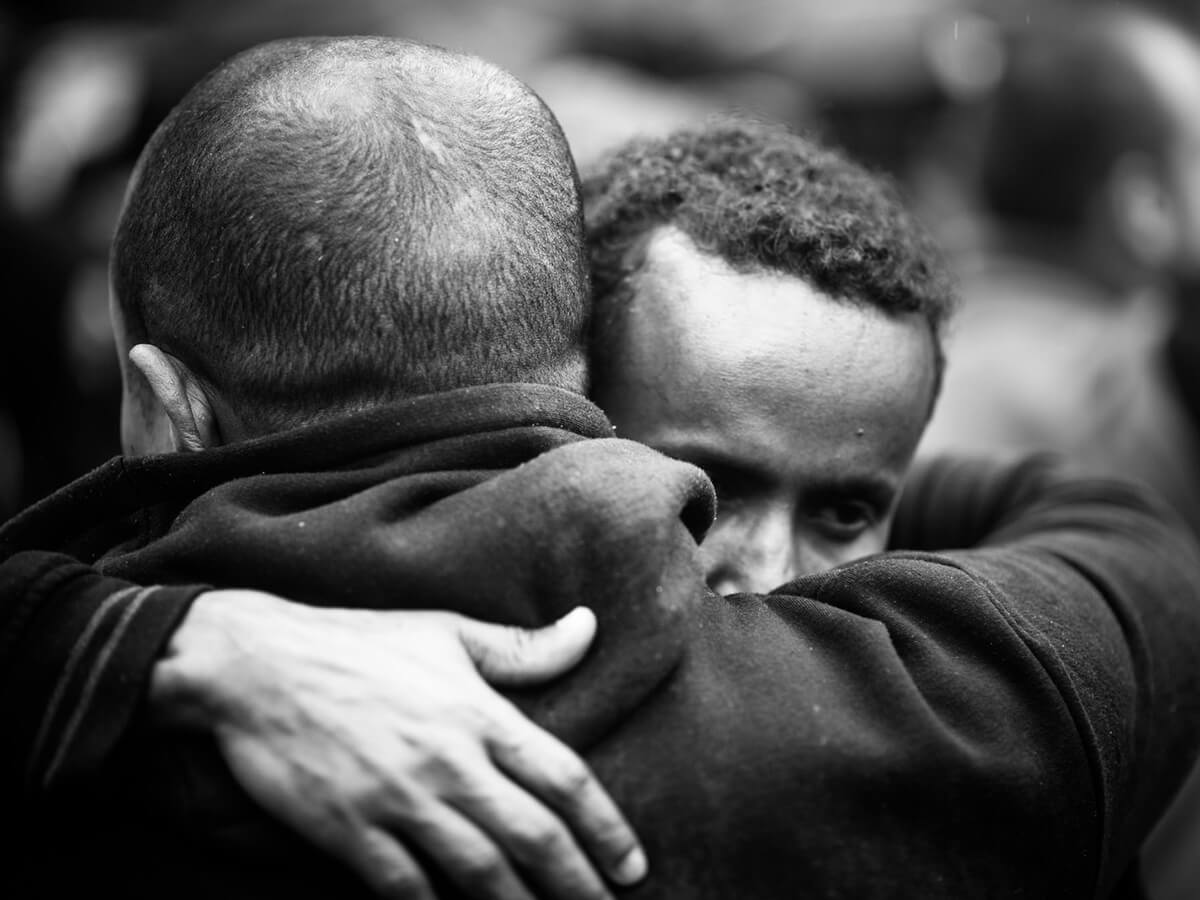After we had been in counseling for over a year, my wife and I chose to separate. The decision was very difficult and painful. During the next ten months we continued in counseling, working toward a reconciliation. Most people in our church did not know how to treat us. Ultimately, the reconciliation did not occur.
The most helpful persons showed each of us quiet compassion and support. One family was especially helpful. The husband began by calling me to ask me to meet him for lunch. We were not well acquainted at his first contact. But I welcomed his friendly invitation. On many later occasions, he simply made himself available for conversation at his home or over coffee at a restaurant. However, he did make it clear that he was interested in helping us through this painful time and was hopeful that we could be reunited.
He was alert to the best time to call. For instance, he often called early Sunday night because he knew that was when I would be alone and lonely, having just returned our two children to their mother after a weekend visit. After a few moments of conversation, he might say, “You’re really down, aren’t you? I can hear it in your voice. Why don’t you come over for some popcorn and TV?”
Over a few weeks he gained my heartfelt confidence because he listened much more than he talked. And after listening for several weeks, he did not hesitate to point out character traits I needed to work on. He became my most trusted, insightful friend. He always treated me with respect and unconditional love. He never implied that I had to do any particular thing to gain his love or respect. He took immense amounts of his time, and he took the initiative to contact me several times a week. He knew when I was most depressed, I did not feel I deserved anyone’s attention and was unlikely to initiate contact. He pursued our friendship gently and yet with great professional insight.
Two things are startling about his: first, he did not have any formal education to prepare him for the role. He was a warehouse foreman who had not finished high school. But he had a spiritual gift for caring and showing love. Second, he and his wife were giving the same kind of attention to my wife while we were separated. We were each dealt with separately. Their attention included invitations to dinner with them and their family, other casual social evenings, and also some intensive discussion when it seemed the time was right. They never manipulated us so that we would be coming to their house at the same time unawares, or any such stunts.
People who were not helpful were the ones who presented us with propositions from the Bible that proved God did not want us to be divorced. One or two of these folks showed some compassion and concern, but could not get past their own discomfort. Their desire for us to get over this marriage problem was the driving force. Their ability to care was distorted and forced through a narrow conduit. We could only keep their love and respect if we could agree to their solutions, quite the opposite of accepting, unconditional love. They found it hard to believe that we really desired to do the right thing. But we didn’t need them telling us we were failing God. We already knew that. -Jim
Wisdom for the Caregiver
- “During the first six months of my marriage I knew that I had made a terrible mistake; however, by then I was pregnant, and the evilness/sinfulness of divorce had been drilled into my head all during my young years. Thirty years later I decided to divorce my husband. When I filed for divorce, friends and acquaintances actually congratulated me on my decision, but then they quickly projected the attitude which said, ‘Now that that’s over, get on with your life.’ What they did not realize was that although I chose to divorce my husband, and although I have never regretted that decision, divorce was ten times more painful than I ever imagined. There were awful fights about the children and settlements. There was dark loneliness and depression. There was a healthy supply of guilt, and my self-esteem was at rock bottom.” -S.J.
- “At the time of the divorce I belonged to a small group which met on Sunday evenings. None of those members will ever fully know how important that group was to me. Some weeks I did not know if I could hold myself together until Sunday night. It wasn’t so much that I wanted to talk about all of it with the group; I just needed to know that someone cared, that some people still liked me.” -S.J.
- “One of the most thoughtful gestures happened on the day that my ex-husband was remarrying. A couple from the small group called, and invited me to go sailing with the declaration, ‘You are not going to sit home alone tonight.'” -S.J.
- “Two months after I had filed for divorce a Christian education minister from my church called and asked if I would consider teaching children’s church school during the summer. That request meant a great deal to me because it said that I must not be such a bad person if they still want me to teach children. I must be of some usefulness.” -S.J.
For additional caregiving advice, refer to the following categories on this website: “Caregiving Basics.”
The above advice is from The Compassionate Congregation, pages 179-184.


0 Comments